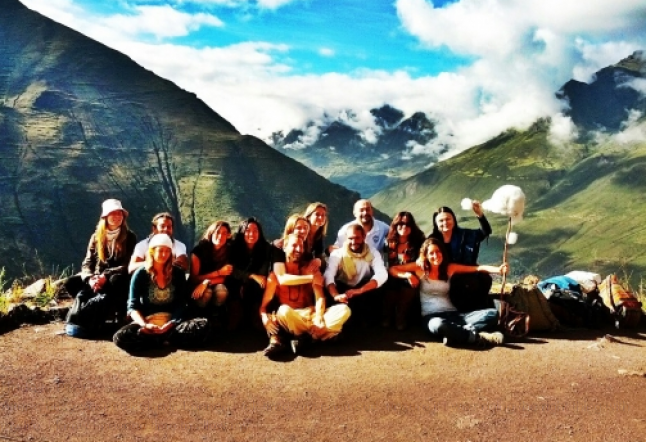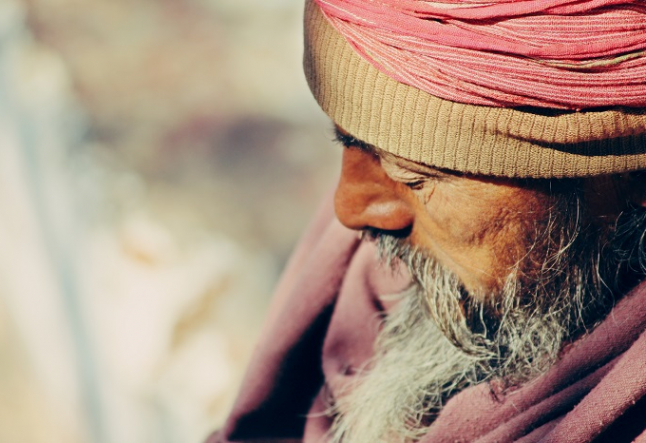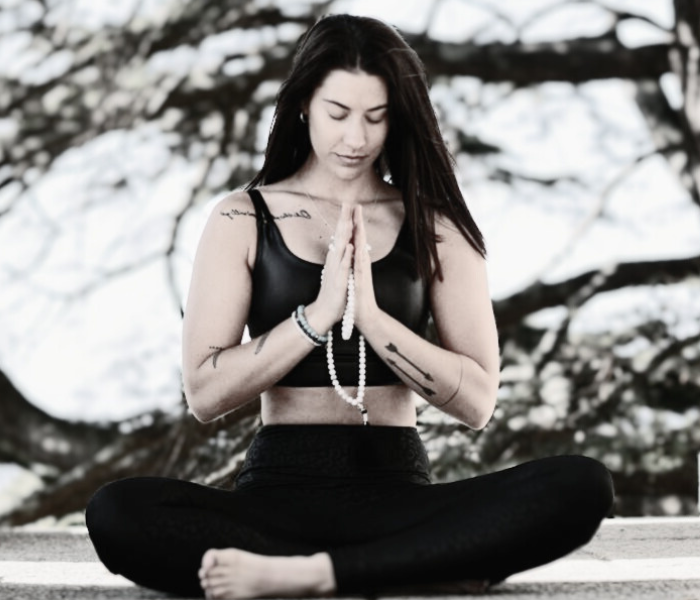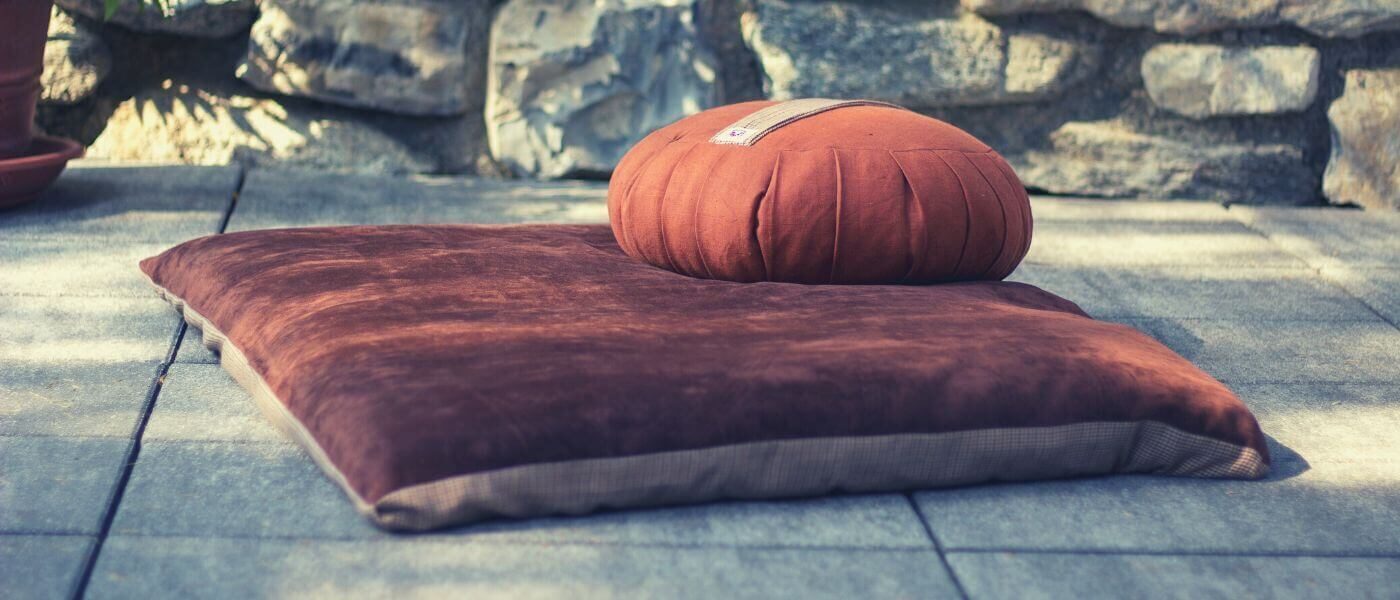silent meditation retreat in peru

After a busy year studying in London, I felt tired and confused, unsure if I was doing the right thing with my life. I knew I needed time to allow my mind to settle, so I planned to take a few weeks off in the summer and go to Peru. Online I found a silent retreat set on an island in Lake Titicaca. The Island looked beautiful: a mossy mound rising out of the highest lake in the world. Three days of silence in this remote and stunning location sounded perfect.
I read about the meditation technique they taught at the retreat: Hridaya (“spiritual heart”).
It originated from the Indian sage Ramana Maharishi’s teachings, and it focused on gaining awareness of and opening the heart centre, seen as the seat of our true nature, where we experience real joy and peace.
Related>> Yoga & Meditation Teacher Training
I had previous experience of meditation and knew it to be a good way to realize what was really important in one’s life, so I contacted Hridaya Peru and booked a place.
When I finally arrived in Cusco, I felt immediately better. The fresh Andean air, bright sunshine, and slow pace of life began to heal my mind and body. I stayed there a few days before the retreat began, feeling a sense of excitement at what was to come.
Lakshman is the main teacher at Hridaya Peru. Though originally from Germany, he has spent a decade travelling the world, studying yoga and meditation.
I spoke to him via email before the retreat, and he was always very helpful and made things seem easy. He booked all transportation and accommodations from Cusco. When I finally met him, I felt calmed by his smiling and peaceful presence.
The journey to Amantani was just a few hours in a spacious air-conditioned bus. There were four students, including myself, on the retreat; we chatted a little and napped on the way.
Through the window, I watched the green hills, valleys, and vast white-topped mountains of the Andes reel behind me.
After a change of bus at Juliaca, we took a smaller “combi” van to the edge of Lake Titicaca. At first glance, I was struck by the size of the lake. It stretched out like a sea and was studded with islands that rose out of the water like green gemstones.
At the end of a long wooden jetty, a wooden motor boat sat bobbing in the water. The lake was quiet and still, and the water reflected the green hills and the sky above. Overlooking the lake, the center had a beautiful open courtyard, flower filled garden, and a large dining room.
We were each given a room of our own with a bed and a desk. Before dinner, we took some time to get settled and familiarize ourselves with the place.
Throughout the retreat the food served was tasty, wholesome and vegetarian, prepared lovingly by our hosts.
At dinner, Lakshman told us what to expect on the retreat and answered any questions. We were encouraged to pay attention to our actions and to be thankful for the great hosts, the fantastic food, and the idyllic island.
The retreat began after dinner with a meditation by candlelight. Lakshman introduced the course structure, the technique, and a little about its history. After the evening meditation, we went back to our rooms to get some rest before the first meditation the following morning.
Related>>> Ziva Meditation
Some retreats, like Vipassana, can be very rigorous. Students are expected to rise at 4am and meditate almost constantly for 12 hours a day. A Hridaya retreat takes a softer approach. You rise at 6.30 for a 7am start, this is followed by breakfast, another meditation, a yoga practice especially designed to help meditation, a short talk about the technique from the teacher, another meditation, and then lunch.
The retreat eases you in so that mind and body become accustomed to sitting in meditation for longer periods.
I had a tough time on the first day. Every time I tried to concentrate on my breath or focus on my heart, I felt distracted, carried away into thinking. On top of that, my body ached, my joints were tight, and my neck throbbed. I persisted and, slowly, I improved.
By the evening, I found my mind was more focused and that night I slept deeply. There are no streetlights on Amantani, and it is perfectly silent. The next morning I woke early, feeling rested and refreshed.
The second day was much better. I was able to sit for longer periods, and my mind felt clearer and lighter. I began to feel the beneficial effect of the practice and the island.
After breakfast, I sat in the sun and looked out over the lake, watching the mountains beyond and the play of sunshine through distant clouds.
In a Hridaya retreat, you are encouraged to keep a notebook to record your progress and any insights you might have. I began to write short reflections. Given the space, time, silence, and the beautiful surroundings, I found my creative energies rising up from my heart.
I felt enthusiastic about life for the first time in many months.
The Hridaya teaching focuses on breathing into the spiritual heart, which is where our true self resides, beyond names and conditions. I found that connecting to that place allowed me to feel a sense of wellbeing and joy, which released my creativity. My heart was like a clenched hand that had begun to loosen.
As the meditations improved and the calming effect of Amantani took strengthened, my mood began to improve drastically. I felt a great connection with my co-meditators, the surrounding nature, and””above all””my own sense of wellbeing.
After lunch each day, we had two or three hours free to explore the island. On the first day, I walked down the hill and passed local women herding goats or carrying bags full of maize on their backs, some with babies strapped around them the way Peruvian women do.
Though I stayed silent, just nodding and smiling at them, I enjoyed just seeing another human being. This was very different from how I felt in London, where people were usually blocking my way in the street or filling up tube carriages.
On the afternoon of the second day, Lakshman led us up the hill to the temple of Pachamama, which means “mother earth.”
Climbing toward the temple, following a long, cobbled road felt like a pilgrimage. We passed stone shrines along the way, piled high with rocks, each one set down with a prayer.
The higher we climbed, the more the lake below was revealed. At the top of the island, the temple was mostly rocks piled and scattered, dry-stone walls, and parched, yellow grasses. I stopped to take in the view of distant mountains and the sun setting behind them.
We meditated as a group and then Lakshman suggested we explore a little. I saw the faces of the others beaming in silent rapture or deep peace. I felt the sacredness of the place and a deep inner gratitude.
On the third day, we spent the afternoon down at the lakeshore. Again we meditated, and I found that the surrounding beauty only added to the sense of inner beauty we had been cultivating in our meditations. Sitting by the lake, I felt open and at peace, with a deep love for the place and the people I had shared my time with.
That night we sat our last meditation and then shared our experiences. The change in each of us from that first day was noticeable. Everyone was more relaxed, open, and happy. It seemed the retreat was a great chance for us all to stop and examine what is important to us.
Most of us planned on making some changes in our lives.
On the last morning, we took a boat back across the lake. As we neared the mainland, I gazed at the receding island, trying to pick out the center among the green and yellow patchwork of fields and houses.
For three days on Amantani, time had slowed down for me. As I left, I felt like I had been there a long time.
As I focused on my heart, I realized that I carried within me a sense of joy and optimism, like a warm hearth within my chest. I knew that in the future, wherever I was, I could return to that place I found on Amantani, just by sitting and breathing and entering into the warm depths of the spiritual heart.
Read next >>> village hotel changi by far east hospitality
Email |



